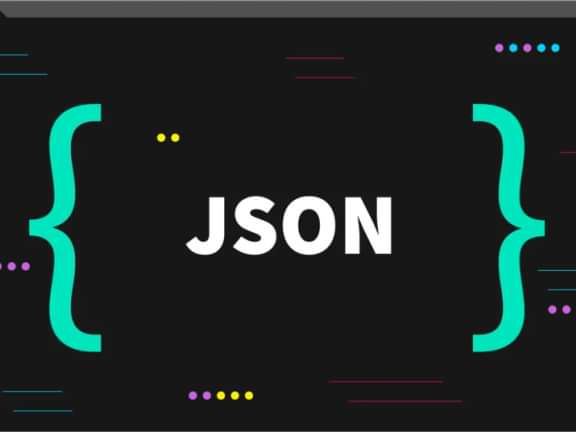Bing SEO: Optimization Strategies That Google-Focused Marketers Miss
Stop ignoring the search engine that powers about 10% of global queries. Bing's algorithm plays by different rules, rewarding savvy marketers with less competition and potentially higher conversion rates.
Did you know that Bing and its network partners capture nearly 20% of the desktop search market in the US? That’s over 60 million people! While we all know that Google dominates the SEO conversation, savvy marketers are quietly capitalizing on Bing's less competitive landscape to drive significant traffic and conversions.
Truth is most of your competitors are laser-focused on Google, leaving Bing's valuable search territory relatively unclaimed. But here's where it gets interesting:
Optimizing for Bing doesn't mean abandoning your Google strategy. Instead, it's about making strategic adjustments that can boost your visibility across both platforms.
Whether you're looking to diversify your search traffic, lower conversion costs or tap into Bing's distinct user demographics, this guide will walk you through the nuanced differences in Bing SEO optimization that can give you an edge.
Breaking Free from Google-Centric SEO Thinking
Most SEO conversations revolve around Google like teenagers obsessing over the popular kid at school. But ignoring Bing is leaving money on the table, especially since it powers roughly 6-10% of global searches and even more in certain markets like the US.
Bing's algorithm marches to its own drummer in several key ways. While Google has evolved toward understanding user intent and contextual meaning, Bing still shows a stronger affinity for exact-match keywords. This is unlike Google, which uses semantic search to understand user intent and variations of keywords, Bing favors pages that contain the exact terms users input. [2]
Yes, Bing is still that friend who needs you to be painfully literal sometimes. If you want to rank for "best running shoes for flat feet," Bing appreciates seeing those exact words in your content more than Google might.
Bing Domain Authority
Domain authority carries significant weight in Bing's ranking calculations. Websites with established histories, official status, and recognized brand signals tend to perform better.
It's like Bing has a touch of old-school respect for institutions, the digital equivalent of preferring someone in a business suit over trendy streetwear.
Perhaps most interestingly, social signals impact Bing rankings more visibly than they do Google's. Your social media presence, particularly on platforms like LinkedIn and Twitter can influence how Bing perceives your site's relevance and authority. This makes sense given Microsoft's ownership of LinkedIn and integration across its digital ecosystem.
Finally, while Google has downplayed the importance of technical SEO elements like meta descriptions in favor of creating its own snippets, Bing still gives these fundamental HTML elements their due respect. Your carefully crafted meta titles and descriptions have a better chance of appearing verbatim in Bing results, making them worth the extra effort.
In fact, research indicates that websites in the first position on Bing receive approximately a 42.5% of click-through rate, making keyword optimization in titles and meta-descriptions particularly valuable for capturing traffic [3]. This can provide exceptional value.
Technical SEO Essentials for Bing Optimization
If technical SEO for Google is like fine-tuning a sports car, then Bing optimization is more like maintaining a reliable sedan: less flashy perhaps, but the fundamentals really matter.
Meta Tags: For optimal Bing performance, keep titles under 65 characters and meta descriptions between 150-160 characters. Like we mentioned earlier, be direct, include your primary keyword early, and add a clear call-to-action where appropriate.
XML sitemaps play a crucial role in helping Bing understand your site structure. Unlike Google, which has become increasingly adept at discovering content without explicit guidance, Bing benefits from a well-structured sitemap that:
1. Updates automatically when content changes
2. Includes only canonical, indexable pages
3. Maintains proper hierarchical structure
4. Lists your most important pages first
Bing Webmaster Tools for SEO
These tools should be your command center for Bing optimization. This platform offers insights you simply won't get from Google's tools, including specific keyword performance data that Google has long since hidden. Take time to verify your site, submit your sitemaps, and regularly check for crawl errors that might be hindering your performance.
Schema markup types hold particular value for Bing rich results. While both search engines use structured data, Bing seems to place extra emphasis on certain schemas such as Organization, LocalBusiness, Product, FAQ, HowTo, and Event.
"If you're not implementing schema for Bing, you're essentially hiding in plain sight," as one digital marketer aptly put it (4)
Content Strategies That Perform Better on Bing
Content is King with Bing
Content optimization for Bing requires a slightly different mindset than what works best for Google. While keyword stuffing remains firmly in SEO's hall of shame across all platforms, Bing does respond more favorably to strategic keyword density and placement. For Bing-friendly content, aim to include your primary keyword in:
- The first 100 words of your content
- At least one H2 heading
- Image alt text
- The URL structure when possible
Multimedia content significantly impacts Bing SERP visibility. Bing's visual search capabilities are actually quite sophisticated, and the search engine rewards content that includes relevant images, videos, and interactive elements. Each piece of media should be properly tagged with descriptive filenames and alt text that includes target keywords where natural:
- Short paragraphs (3-4 sentences max)
- Bulleted and numbered lists
- Descriptive subheadings
- Bold text for key points
- Table of contents for longer pieces
Local Content
It follows different rules in the Bing ecosystem. Bing Maps places greater emphasis on official business information and category relevance than Google's more review-centric approach. Ensure your NAP (Name, Address, Phone) details are consistent across all platforms, but pay special attention to your business categories and attributes in Bing Places.
Content freshness factors into Bing's evaluation system, though perhaps less dramatically than Google's. Rather than constantly updating publication dates, focus on meaningful content improvements and expansions that add genuine value for users.

Leveraging Bing-Specific Features for Higher Rankings
Bing offers several unique features that savvy marketers can leverage for competitive advantage. Think of these as Bing's special sauce.
Visual search optimization presents significant opportunities in the Bing ecosystem. Beyond basic image SEO, consider how your visual content appears in Bing's visual search results. High-quality, distinctive images with proper metadata can drive substantial traffic, especially for product-based businesses.
Entity carousel results: Those horizontally scrollable information panels, offer prime SERP real estate. To appear here, focus on creating content that clearly defines entities (people, places, things) with comprehensive, factual information structured in a way that Bing can easily parse.
Bing's AI-powered answers and featured snippets tend to favor content that provides clear, concise information in a structured format. For technical or instructional content, create step-by-step guides with numbered lists and concise explanations. For definitional content, lead with a clear, direct answer to the likely query.
The Microsoft ecosystem integration offers unique advantages for Bing optimization. Content that seamlessly connects with Office products, appears on LinkedIn, or integrates with Microsoft's broader technology stack may receive preferential treatment. For B2B companies especially, cultivating a strong LinkedIn presence can boost Bing visibility in ways that don't translate to Google.
"Bing isn't just a search engine, it's a gateway to Microsoft's digital universe," as one digital strategist puts it. "That connection creates opportunities you won't find elsewhere."
Measuring and Improving Your Bing SEO Performance
You can't improve what you don't measure, and Bing requires its own performance tracking approach.
Bing Webmaster Tools offers a treasure trove of insights that can transform your understanding of how your content performs on Microsoft's increasingly sophisticated search platform. Rather than occasionally glancing at these metrics, savvy marketers develop regular monitoring routines focused on five critical areas:
Crawl Intelligence: Beyond simple error counts, these reports reveal how Bing's crawler navigates your site architecture, highlighting potential bottlenecks and priorities for technical optimization.
Link Ecosystem Analysis: Understand not just who links to you, but how these connections influence your authority in Bing's unique ranking algorithm, which weighs link quality differently than Google.
Keyword Journey Mapping: Track how your target phrases perform over time, revealing seasonal patterns and emerging opportunities before they become obvious to competitors.
Mobile Experience Scores: With Bing's mobile-first approach gaining momentum, these insights help prioritize user experience issues that could be undermining your performance.
Engagement Metrics Dive deeper than basic traffic numbers to understand how different segments interact with your content, allowing for more targeted optimization efforts.
By transforming these metrics into actionable intelligence, you'll develop a Bing strategy that doesn't just track performance, it drives it.
Future-Proofing Your Bing SEO Strategy
Bing and AI
Microsoft's partnership with OpenAI has already begun reshaping Bing's capabilities and approach. The integration of ChatGPT technology into Bing search represents perhaps the most significant development in Bing's history. For instance, ChatGPT uses Bing's index, so if Bing doesn't have your page, neither does ChatGPT."[5]
The future of Bing search belongs to content creators who embrace a more sophisticated approach to information delivery. Rather than optimizing for outdated algorithmic preferences, tomorrow's digital leaders will focus on developing resources that answer questions with genuine depth and nuance, offering readers the balanced perspectives they crave in an increasingly polarized information landscape.
This evolution rewards publishers who substantiate their insights with verifiable data points and research, positioning themselves as true subject matter experts rather than shallow content mills. The sites that will ultimately dominate Bing's AI-enhanced search results won't just match keywords, they'll demonstrate a profound mastery of their topic that both algorithms and human readers can recognize as authoritative.
Conclusion
In all, Bing SEO optimization represents a strategic opportunity that too many marketers overlook. While Google deservedly commands attention, the techniques we've explored show that Bing requires its own thoughtful approach: one that can yield impressive returns with relatively less competitive pressure.
Remember....
Success on Bing isn't about abandoning solid SEO fundamentals. Rather, it's about recognizing and adapting to the platform's unique priorities: exact match keywords, authoritative domains, comprehensive technical SEO, and strategic integration with Microsoft's ecosystem.
As search continues to evolve (along with AI), diversifying your traffic sources isn't just smart, it's essential. By implementing these Bing-specific strategies alongside your existing SEO efforts, you're not just hedging against Google algorithm changes; you're actively tapping into millions of searches happening every day on a platform your competitors might be ignoring.
The question isn't whether you should optimize for Bing, but whether you can afford not to. Your move, search marketer!
Continue reading.
The Element API plugin is a very powerful tool that you can use for quickly exposing your data structures to an external source.
Read moreA brief introduction to consensus mechanisms and why proof of stake is the right move for Ethereum.
Read moreLet's chat about your project
Portland, OR 97215



